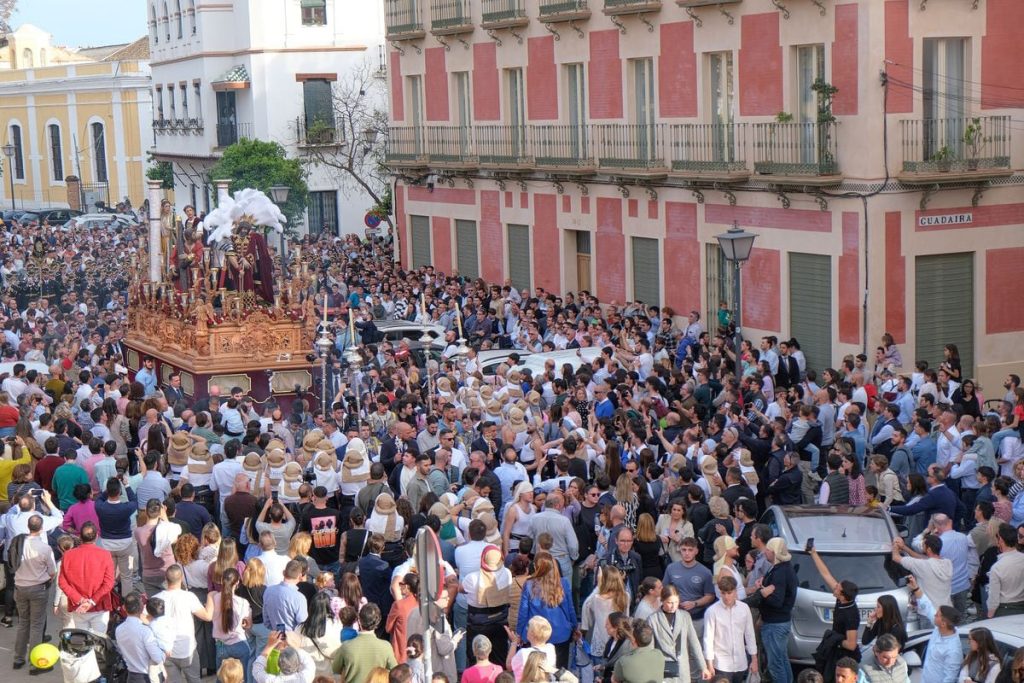Álvaro Maroto, a native of Seville, has been a member of a brotherhood since he can remember. Although he could have settled for being a member of the Estrella brotherhood, where he was enrolled since birth, he wanted more. In 2009, at the age of 16, he came up with the idea of establishing a new brotherhood in Sevilla Este, a neighborhood on the outskirts of the city with over 60,000 residents. After facing rejection from three parishes, he decided to take matters into his own hands. This led to the creation of the civil association Consuelo y Esperanza. This initiative is part of a growing trend in Andalucía where civil associations with members, processions, and images are emerging independently from the Church, in response to being marginalized and labeled as “pirates”.
The surge of these civil associations was evident on the fifth Saturday of Lent, March 16th, in Seville, a hub for this movement. The Abnegación brotherhood procession attracted a large crowd in the San Bernardo neighborhood. Despite not wearing traditional nazareno robes and not starting from a parish, the procession included traditional religious elements such as a procession float and musical accompaniment, showcasing the unique identity of these civil associations. Abnegación’s president, Javier Gámez Villar, reflects on how their existence was born out of rejection by the Church and traditional brotherhoods, leading to their independent growth.
These civil associations, as explained by Francisco Javier Escalera, a social anthropology professor, have roots in unmet societal needs in neighborhoods where traditional brotherhoods were absent. They serve as a source of belonging and identity, especially in marginalized areas where they have become instrumental in strengthening community ties. In Sevilla alone, there are approximately 20 such groups, with an estimated total membership of 15,000 to 20,000 individuals. The emergence of these associations reflects a broader societal shift towards inclusivity and diversity within religious practices.
These civil associations also address the issue of inclusivity, welcoming individuals traditionally excluded from leadership roles in traditional brotherhoods, such as divorced individuals and members of the LGBTQ+ community. Their flexibility and lack of strict oversight enable a more diverse and accepting environment, as opposed to the stringent regulations imposed by traditional brotherhoods. However, the Church, represented by Marcelino Manzano, the regional delegate of Hermandades y Cofradías in Seville, views these civil associations as potentially disruptive to the orthodoxy of traditional religious practices.
Despite attempts by the Church hierarchy to regulate and potentially co-opt these civil associations into the traditional brotherhood structure, many of them resist and assert their independence. The decentralization of religious practices and the emphasis on personal expression and inclusivity have fueled the growth of these associations beyond the confines of the Church’s control. The ongoing debate surrounding the legitimacy and role of civil associations in the realm of religious worship highlights the evolving landscape of religious identity and community practices in contemporary society.


